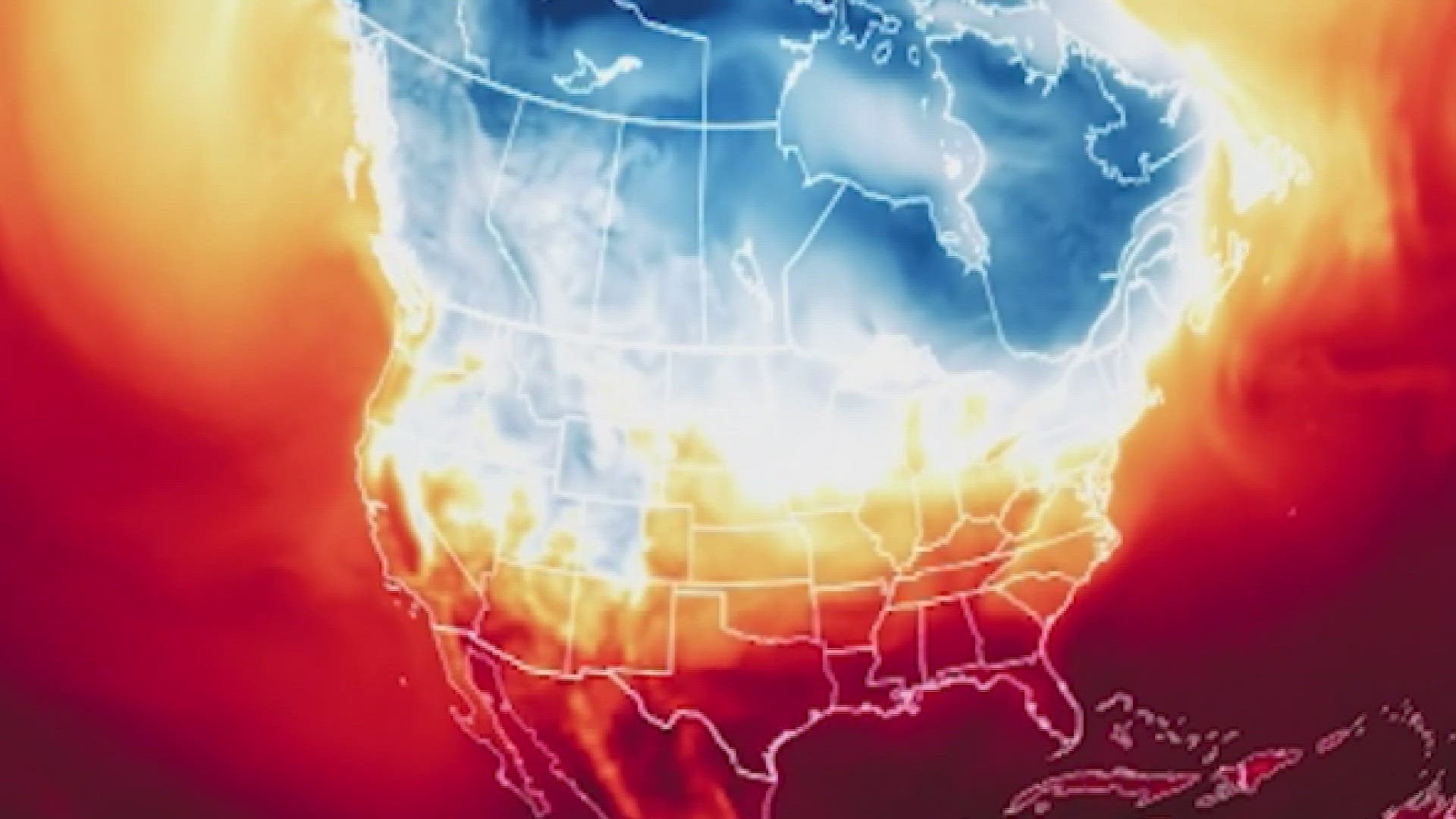FORT COLLINS, Colo. — Many factors contributed to Colorado’s largest wildfire season in 2020: Forest management and fire suppression priorities of the past led to overgrown fuels, and large patches of beetle-killed trees added to the dry fuel load.
But a new study from Colorado State University isolated just the influence of climate change.
Statistics professor Dan Cooley used a metric called the Fire Weather Index (FWI) to identify only the most extreme meteorological conditions during the 2020 wildfire season.
"The FWI is kind of a recipe for all the weather conditions and meteorological variables that increase fire danger," Cooley said. "It takes all the information and assigns a single number to the fire risk for each day."
Once he had the most extreme ingredients of the 2020 wildfire season identified, he applied them to two computer simulations. One he called the current climate, which resembles the climate conditions from 2002 to 2021, and the other was past climate that incorporates the climate scenario from 1959 to 1978.
"The probability of seeing a wildfire season as extreme as 2020 is four to 10 times more likely under the current climate then in that past climate," he said.
He said each climate scenario was simulated thousands of times, and the current climate exceeded those extreme thresholds about three times in a hundred, while those thresholds were exceeded only 0.3 times in 100 seasons in the past climate.
To cover uncertainty in the system, he adjusted the extreme thresholds from in the 2020 wildfire season and found that a similar season would be four times more likely in the current climate. That made the final probability a spread between four and 10 times more likely.
“Putting a number on it, even with the uncertainties, is another way to convey to the public that things really have changed,” Cooley said.
He said he and his team of scientists found that daytime and nighttime temperatures are warmer, and the air is drier in our current climate. That leads to more frequent fire weather conditions.
“What this means is the way we protected ourselves from fire for the last 100 years may not be adequate anymore," he said. "We really do need to change the way we are thinking about fire, and climate’s a big piece of it.”
More 9NEWS stories by Cory Reppenhagen:
SUGGESTED VIDEOS: Colorado Climate
9NEWS+ has multiple live daily shows including 9NEWS Mornings, Next with Kyle Clark and 9NEWS+ Daily, an original streaming program. 9NEWS+ is where you can watch live breaking news, weather updates, and press conferences. You can also replay recent newscasts and find videos on demand of our top stories, local politics, investigations and Colorado specific features.
To download 9NEWS+ on Roku search for KUSA.
To download 9NEWS+ on Fire TV search for 9NEWS.

